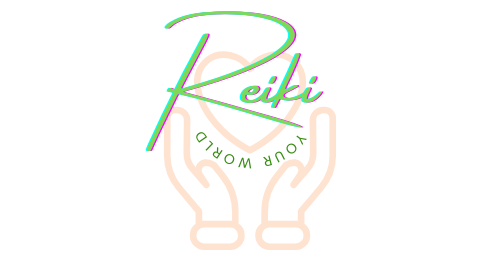Reiki pops up everywhere these days, from wellness retreats to urban spa centers, usually coupled with some intriguing tales about its origins. But let’s take a minute to set the record straight on where Reiki really comes from. This practice hails straight from Japan, being founded by Mikao Usui early in the 20th century.
There’s a lot of myth floating around about Reiki’s history, often suggesting some ancient, mystical roots when it’s actually not been around that long. It’s important to not mistake the modern system of Reiki, established in the last century, for ancient energy practices. Yes, it draws from spiritual traditions, but those whispers of archaic magic? That’s more exaggeration than fact.
Mikao Usui is often shrouded in stories of mystical journeys atop sacred mountains or divine revelations, which create an aura of mystery. However, Usui was likely a pretty down-to-earth guy interested in the metaphysical and spiritual exploration common in his time. He synthesized various teachings into what we now know as Reiki, without those dramatic stories often attributed to him.
Sorting fact from fiction makes Reiki more approachable and grounded. This mindfulness of origin helps practitioners and recipients alike to connect with Reiki’s genuine philosophy without getting lost in fantasy. Next time you hear a far-fetched tale, know there’s likely a simpler truth closer to the heart of this holistic practice.
Clarifying the Role of Belief in Reiki: Does Skepticism Affect Its Efficacy?
The topic of belief in Reiki often sparks heated debates, so let’s clear the air. A common misconception is that you must believe in Reiki for it to work. This isn’t entirely true. While belief might enhance your experience, the absence of it doesn’t necessarily render the practice ineffective. Reiki practitioners often emphasize the gentle power of the practice that operates whether or not you’re a staunch believer.
Science and Reiki might sound like odd bedfellows, and that’s partly true considering the lack of traditional scientific evidence backing the practice. However, some research shows Reiki can help with stress reduction and relaxation, which doesn’t require a leap of faith. Critics argue about the lack of measurable data, but proponents point to positive individual experiences and testimonies.
It’s not unusual for skepticism to creep in, especially among those new to alternative therapies. While belief is welcomed, it’s more about being open to the experience. Think of it like trying a new dish – you might think it looks odd, but taste can surprise you! Acceptance of the possibility allows for a more open experience.
Discussions within scientific circles about Reiki can be as polarizing as political debates. Some researchers dismiss it entirely, while others see potential in examining its effects more thoroughly. It’s okay to have doubts, but skepticism need not shut the door on exploration. Consider Reiki as an additional tool in your wellness toolkit rather than a cure-all, giving yourself room to experience and evaluate its impacts firsthand.
Therapeutic Scope of Reiki: Beyond ‘Touch Healing’
Reiki is often pigeonholed into the realm of ‘touch healing’ but there’s way more to it. At its core, Reiki is about channeling energy to support overall well-being, targeting more than just the physical body.
Many people think Reiki is limited to physical healing, but it actually has broader benefits. It’s used to complement emotional and mental health treatments, often assisting in stress reduction, relaxation, and even emotional clarity. Imagine it as a deep breath for your mind and spirit, helping to alleviate the chaos of daily life.
Reiki is making waves in mental health circles, offering solace and support to those dealing with anxiety and depression. It’s not a standalone solution, but when integrated with traditional therapies, it can enhance recovery and provide calming peace.
A plethora of case studies suggest that Reiki can positively impact various aspects of life. Whether someone is dealing with chronic pain, insomnia, or intense stress, Reiki can offer a supportive hand. Personal experiences often highlight an improved sense of balance and tranquility.
Reiki’s effectiveness depends on individual experiences and receptivity. It’s less about magical healing and more about offering an environment where your body can kickstart its natural self-healing processes. With regular sessions, some people find a significant impact on their overall health, leading to a more harmonious life.
Professionalism and Credibility in Reiki Practice: Addressing Misperceptions
Understanding professionalism in Reiki involves more than just knowing the right techniques. It’s about ensuring that practitioners are well-trained, ethical, and credible. A common myth is that anyone can become a Reiki practitioner overnight. While Reiki is accessible, becoming a credible professional requires proper training, guidance, and practice.
Reiki certifications vary greatly, and it’s vital to delve into what these actually mean. Genuine, reputable training programs include hands-on practice and in-depth study. Practitioners worthy of trust have typically worked under established mentors and continue to expand their education.
Legal and ethical considerations are also crucial areas where many misconceptions arise. Practicing Reiki requires understanding boundaries and respecting privacy, similar to any other wellness practice. Professionalism in Reiki is not just about applying techniques but also about providing a safe, respectful environment for clients.
Picking the right practitioner can feel like a maze, but there are clear signs to look for. Check for credentials, seek referrals, and trust your instincts. A credible practitioner will not promise miraculous cures but will focus on offering a supportive and healing experience.
Avoiding scams is key when exploring Reiki. Beware of too-good-to-be-true promises or practitioners who focus more on upselling products than offering holistic guidance. A genuine Reiki session centers on personal growth and healing, not financial exploitation.
